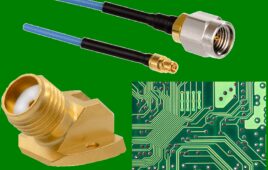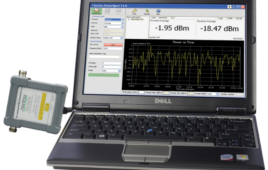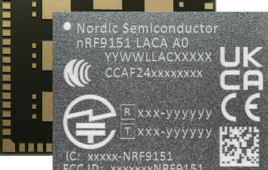Tektronix USB 3.1 testing capabilities include automated 10 Gb/s transmitter, receiver testing, USB power delivery, USB type-C cable test solutions.
Beaverton, OR – Tektronix has released a comprehensive set of USB 3.1 compliance test solutions that allows designers to quickly verify designs against the latest USB specifications and achieve fast time to market while minimizing costs. The new release expands Tektronix’ already extensive USB 3.1 and USB 2.0 test capabilities to include a new USB 3.1 receiver test solution supporting the 10 Gb/s data rate, a new USB Power Delivery test solution and a new USB Type-C cable test solution.
As speeds continue to increase, USB testing has become far more complex than in the past. Testing will be critically important to the success of USB 3.1 silicon and product designs which must meet performance expectations, maintain backward compatibility with previous USB specifications and interoperate smoothly with other low-cost USB products. Moreover, USB 3.1 designs must address challenging new requirements including 128b/132b encoding, lower jitter budgets, higher loss (with likelihood of integrated repeaters), and more complex equalization. The new Tektronix solution reduces the complexity of performing USB 3.1 compliance tests while also supporting debug and margin analysis.
“The latest version of USB 3.1 is all about speed and better user experience – faster data rates and fast time to market,” said Brian Reich, general manager, performance oscilloscopes, Tektronix. “With this latest release, Tektronix continues to demonstrate its market leadership in providing USB test solutions that enable our customers to confidently and quickly validate, characterize and troubleshoot designs and gain a competitive advantage.”
Automated USB 3.1 Receiver Testing
Receiver testing is now a mandatory requirement for USB 3.1 certification. Due to faster data rates, it is critical to ensure that the receiver properly interprets the incoming bit stream. The new BSAUSB31 solution for Tektronix BERTScope bit error rate testers significantly simplifies receiver testing. No longer must the end user be an expert in USB. Processes for defining test parameters, putting the device into the proper test mode, measuring errors, showing results after each frequency is executed, and printing/storing the test results are all fully automated, saving time and improving accuracy. The solution provides all of the required signal impairments for USB 3.1, including SJ, RJ, SSC, and signal attenuation with a compliance channel.
Among the early adopters of USB 3.1 has been ASMedia, which turned to Tektronix for test and measurement support. “With the help of advanced Tektronix instrumentation and software, ASMedia’s controllers, switches and other USB 3.1 I/O products have excellent electrical characteristics with minimal jitter and a very clear eye,” said Weber Chuang, Senior Vice President Product Marketing Division for ASMedia. “We’re confident it will provide a very stable and consistent link to the host controller and yield excellent throughput even with a cascaded three meter USB 3.1 cable. Tektronix tools were crucial in helping us achieve our design goals so quickly.”
USB Power Delivery Test Solution
The need for USB power that can be transmitted through cables has grown beyond USB Battery Charging capabilities. This limitation is addressed with the USB Power Delivery specification which can provide up to 100W power at 20V in either direction. Developed in conjunction with Tektronix partner Granite River Labs, the new GRL-USB-PD software supports critical PHY layer testing as detailed in chapter 5 of the Power Delivery specification. Tests include rise/fall time, transmitter and receiver eye mask and others. In addition, the software provides pattern decode of the Binary Mark Coded (BMC) signals for further debug and analysis.
“The updated USB Power Delivery specification is an exciting addition to the USB ecosystem and will open up a broad range of interesting applications for USB that simply haven’t been possible until now,” said Mike Engbretson, chief technology engineer for Granite River Labs. “Since USB Power Delivery is now more complex than it has been in the past, test solutions such as GRL-USB-PD will be critical to efficiently debugging and validating new USB Power Delivery ICs and system designs.”
USB Type-C Cable Test Solution
In August 2014, USB Implementer’s Forum (USB-IF) introduced a symmetrical, reversible USB Type-C connector intended to complement existing USB cables and connectors. A new USB Type-C cable test method of implementation (MOI) document can be downloaded from www.tektronix.com/USB. Recommended test instrumentation includes a DSA8300 sampling oscilloscope, two 80E10B TDR modules, 80SSPAR IConnect S-Parameter analysis software, Luxshare-ICT USB Type-C SI fixture kit, and the USB-IF signal integrity compliance tool.
“From faster data rates with USB 3.1 reaching up to 10 Gbps to an exciting new USB Type-C cable design and upgraded USB Power Delivery specification, USB is well-positioned for long-term growth and even broader market acceptance,” said Jeff Ravencraft, USB-IF President and COO. “But this doesn’t happen without a thriving ecosystem and the ability to ensure product compliance and reliability under a broad range of conditions. Tektronix continues to make major contributions to the success of USB specifications with comprehensive test solutions that have been broadly adopted across the industry.”
For more information visit www.tektronix.com.




